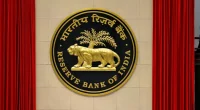As an investor, the most important concern is to find out the time by when the investment will really grow. The Rule of 72 relates to the calculation which estimates the number of years it will take to double the money of an investor at a specified rate of returns.
For instance, if an investor’s account earns 6%, divide 72 by 6 to arrive at the number of years it will take for the money to double. That is 12 years in this case.
This calculation is feasible for inflation as well. The only difference being that it will reflect the number of years till when the initial value has been cut in half, instead of doubling.
The Rule of 72 is an approximation value. At 8% interest rate, the Rule of 72 provides the most accurate results. And the farther one moves from 8% in either direction, the less accurate the results will be.
Many investors aim to continue investing on a long-term basis, often monthly. It is possible to project how long it takes to get to a given target amount if one has an average rate of return and a current balance. For example, if an investor has Rs 1,00,000 invested today at 10% interest, and they are 29 years away from retirement, they can expect the money to double approximately four times: from Rs 1,00,000 to Rs 2,00,000, then to Rs 4,00,000, and then to Rs 8,00,000 and so on.
In case the interest rate changes, or an investor needs more money to beat inflation or any other factor, the Rule of 72 can be applied in order to decide how to keep investing over a period.
The Rule of 72 can also be used to make choices about risk versus reward. For instance, if an investor has a low-risk investment that yields 2% interest, one can compare the doubling rate of 36 years to that of a high-risk investment that yields 10% and doubles in seven years.

Rajiv is an independent editorial consultant for the last decade. Prior to this, he worked as a full-time journalist associated with various prominent print media houses. In his spare time, he loves to paint on canvas.





